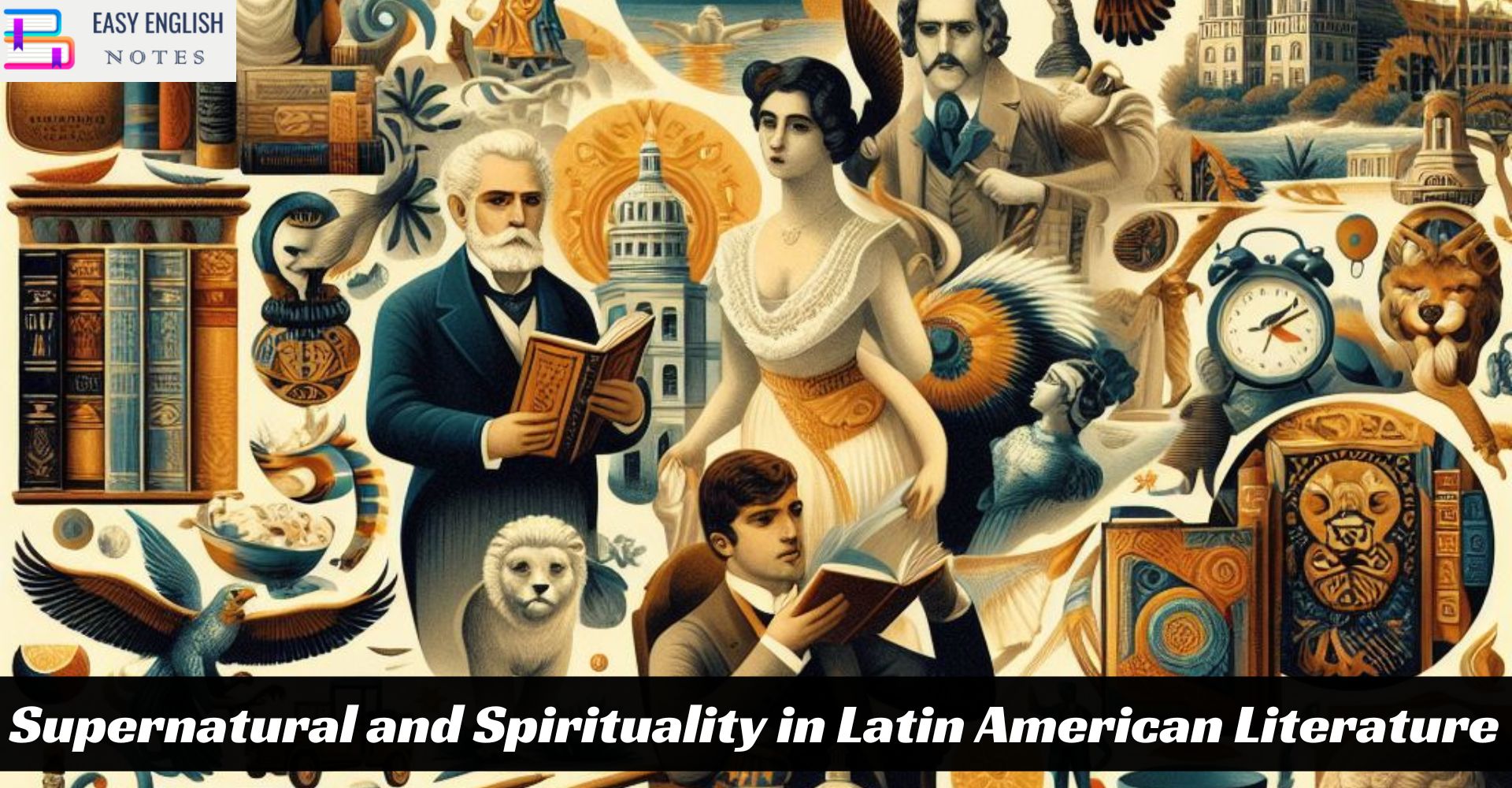The early 20th-century Latin American literature is depicted as a rich tapestry, intricately woven with cords of spirituality and the supernatural, evoking a blend that combines indigenous, African, and European influences. This era, characterized by significant political turbulence and social change, led to the creation of literary works that employed supernatural and spiritual themes as means to ponder upon deeper societal and existential questions.
Historical and Cultural Context
Early 20th-century Latin American literature represents a rich fabric interwoven by the threads of the supernatural and spirituality, reflecting that peculiar blend of the indigenous, African, and European influences. Literary works in this time of political turbulence and social revolution would derive use of the supernatural and spiritual themes as means to look deeper into questions that would pose existentialism.
Indigenous and African Influences
The supernatural in Latin American literature cannot be discussed without it bearing mind the special attention paid to the deep influence that indigenous and African spiritual traditions had. These were such rich mythologies and spiritual practices that they highly contributed to the portrayal of supernaturalism in literature to such a high degree. In fact, the literature of the indigenous cosmologies had a wide range when it came to the boundary lines amidst the spiritual and the physical worlds. Similarly, the African religious traditions that were transplanted to Latin America through the transatlantic slave trade incorporated the themes of magic, possession, and ancestor power.
Google Ads PPC Training Digital – membership area
An Exclusive Blood Sugar Balancing And Weight Loss
Magical Realism: A Synthesis of the Supernatural
The genre of magical realism is quite characteristic of this unification of real and mystic elements of the world and is closely linked with Latin American literature. Writers such as Gabriel García Márquez and Alejo Carpentier are found to have served as the precursors of this genre with their use of the extraordinary within the ordinary in such a manner that defies what reality means. Generally, their works would show the supernatural as a normal, accepted part of everyday life—opposed to the European rationalist view—and would show the syncretic reality of Latin American spirituality.
Early Examples and Themes
Among the first examples of supernatural incidents in Latin American literature are those by Horacio Quiroga, where influenced by Edgar Allan Poe, one traces these elements. The type of uncanny tales that seemed to reflect fears and mysteries underlying the natural order, interwoven with those of human psychology and existential angst.
The other most influential is Rubén Darío, a Nicaraguan poet who was a leading figure of the Modernismo movement in Spanish. He also had a mystical, esoteric touch to his poetry, having drawn a very wide range of spiritual references from biblical to pagan gods, thus exploring the spiritual malaise, search for meaning, in a fast-changing world.
The Role of Spirituality
The spiritual in Latin American literature of the early 20th century often went beyond conventional religious practices and seemed to have a critical, eclectic, and even hybrid view. This partially responded to a sense of disillusionment with institutional religion and was a way of re-appropriating the indigenous and African spiritual inheritances. Literature of the spiritual thereby offered an outlet for the expression and exploration of deeper questions of identity, resistance, and transcendence, hence somehow serving as a counter-narrative to these dominant discourses of progress and rationality.
Also Read :
- Compare Hamlet with Macbeth, Othello and other Tragedies
- “The Pardoner’s Tale” is the finest tale of Chaucer
- Prologue to Canterbury Tales – (Short Ques & Ans)
- Confessional Poetry – Definition & meaning
- Line By Line Explanation Of The Poem The Eve of St. Agnes
Literature as a Space for Resistance and Reclamation
For many Latin American writers, the supernatural and spiritual functioned to be much more than simply literary devices, but as tools of resistance and reclamation of culture. These were themes that were wielded against colonizing and neocolonialist discourses, in seeking the restoration of indigenous and African cultures, and to propose alternative visions of history and society. The supernatural had become a metaphor for the unseen forces of history, culture, and identity that shaped Latin American realities.
Conclusion
In Latin American literature at the beginning of the 20th century, creativity and depth went hand in hand, especially while embracing the supernatural and spiritual, which was in no way escapism but very profound approaches to reality. The themes themselves were suggesting a way out of some otherwise inescapable formulations of Latin American identity, an alternative to the legacy of colonial past or an imagining of its future. So, Latin American writers proceeded to create a body of work that remains enduringly resonant, challenging, and inspiring.
Meeting of the supernatural with spirituality in the Latin American literature is a dual image of traditionally diverse cultural heritage of the region and its present struggle of self-definition under the pressure from the outside. It stands for a literary tradition deeply rooted in the land and its people, offering insights not only into the Latin American psyche but into the human condition at large.











